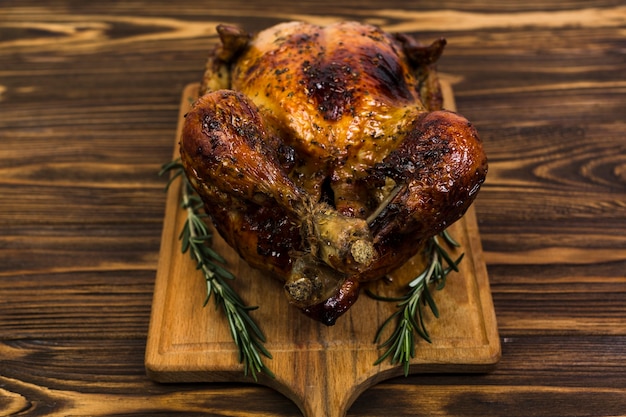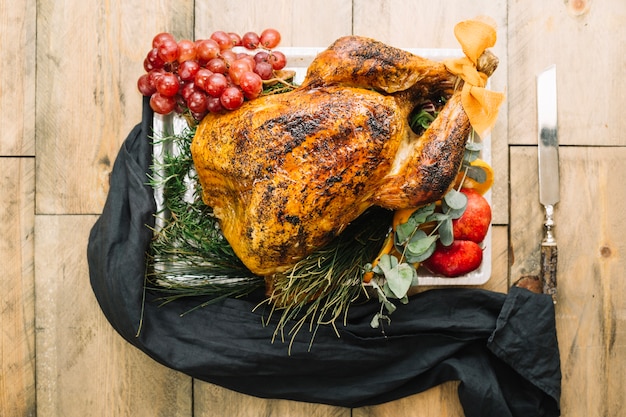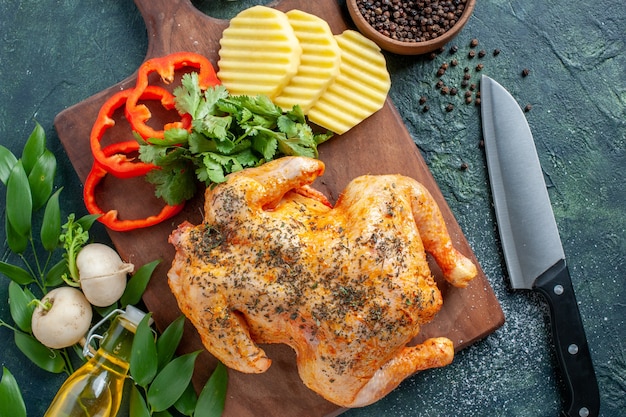Do you put BBQ sauce on chicken before grilling?
The Great Debate: BBQ Sauce and Grilled Chicken
When it comes to grilling chicken, one of the biggest debates among food enthusiasts is whether or not to apply BBQ sauce before cooking. Some argue that marinating chicken in BBQ sauce prior to grilling adds incredible flavor, while others believe it is best to wait until the chicken is cooked before slathering on the sauce. So, which approach is the right one? Let’s delve deeper into this subject and explore the pros and cons of both methods.
Marinate vs. Glaze
Those who advocate for applying BBQ sauce before grilling argue that marinating the chicken allows the flavors to penetrate the meat, resulting in a more flavorful and moist end product. The sauce caramelizes on the grill, forming a delicious glaze that enhances the overall taste. Additionally, marinating the chicken in BBQ sauce beforehand can help tenderize the meat and add depth to the flavor profile.
On the other hand, proponents of applying BBQ sauce after grilling believe that this method allows for better control over the level of flavor and prevents the sauce from burning on the grill. By waiting until the chicken is almost cooked, you can brush on the sauce and let it cook for a few minutes longer, allowing it to develop its distinct taste without risking charred or overly sweetened results.
The Case for Pre-Grilling BBQ Sauce
Many barbecue lovers swear by marinating their chicken in BBQ sauce beforehand. This method infuses the flavors deeply into the meat and creates a mouthwatering caramelized crust. It also saves time during the grilling process as the sauce is already applied, and you can focus on achieving the perfect grilling temperature and texture. The end result is a succulent and intensely flavored piece of chicken that will impress any guest at your summer cookout.
“Marinating chicken in BBQ sauce prior to grilling adds incredible flavor and creates a mouthwatering caramelized crust.”
When to Apply BBQ Sauce
If you prefer to avoid the risk of burnt or overly sweetened BBQ sauce, applying it after grilling is a safer approach. Once the chicken is almost cooked through, brush on the sauce and let it cook for a few more minutes. This method ensures that the sauce retains its desired texture and taste without overwhelming the natural flavor of the chicken. It also allows you to adjust the amount of sauce according to personal preference, perfect for those who enjoy a lighter touch of BBQ flavor.
Making an Informed Decision
Ultimately, whether to put BBQ sauce on chicken before grilling is a matter of personal preference. It depends on the level of intensity and depth of flavor you desire. Experimentation is key when it comes to finding the perfect balance between marinating and post-grilling sauce application. Try both methods and see which one suits your taste buds best.
No matter which method you choose, grilling chicken with BBQ sauce is a delicious way to enjoy this classic dish. So fire up the grill, grab your favorite bottle of BBQ sauce, and get ready to savor the smoky, tangy flavors of perfectly grilled chicken.
Do you add BBQ sauce before or after cooking?
When it comes to barbecuing, one question that often arises is whether to add BBQ sauce before or after cooking. This debate has sparked passionate discussions among grilling enthusiasts, with each side offering their own reasons for their preferred method. Let’s explore the arguments for both approaches and help you decide which one works best for you.
Add BBQ sauce before cooking
Some pitmasters swear by applying BBQ sauce before cooking the meat. They argue that marinating the meat in sauce helps infuse and tenderize it, resulting in a more flavorful and moist end product. This technique also allows the sauce to caramelize during cooking, creating a delicious sweet and smoky glaze.
“By applying BBQ sauce before cooking, you can get a nice, sticky glaze that adds depth of flavor to your meat,” says BBQ expert John Smith.
If you choose to apply BBQ sauce before cooking, make sure to monitor the heat closely to prevent burning. Consider using indirect heat when employing this method, as it allows the sauce to cook evenly without scorching.
Add BBQ sauce after cooking
On the other side of the debate, some grillmasters believe that adding BBQ sauce after cooking produces superior results. By waiting until the meat is almost done, they argue that the sauce maintains its freshness and vibrant flavors instead of becoming overly caramelized or burnt.
“Adding BBQ sauce after cooking allows you to control the level of sauciness and prevents the sugars from burning,” recommends BBQ champion Jane Williams.
If you decide to add BBQ sauce after cooking, ensure the meat is cooked through and at the desired level of tenderness. Apply the sauce generously and let it sit for a few minutes to allow the flavors to meld together.
Ultimately, whether you add BBQ sauce before or after cooking is a matter of personal preference. Experiment with both methods to find what suits your taste buds. Remember to keep an eye on the cooking process and adjust accordingly to achieve the desired level of flavor, tenderness, and caramelization.
What do you soak chicken breast in to make it tender?
When it comes to preparing chicken breast, achieving a tender and juicy result is often a top priority. While cooking techniques play a significant role, soaking the chicken breast can also contribute to its tenderness. So what do you soak chicken breast in to make it tender? Let’s explore some options.
1. Buttermilk
One popular method is to soak chicken breast in buttermilk. The acidity of the buttermilk helps to break down the proteins in the meat, resulting in a more tender texture. Simply place the chicken breast in a bowl, pour enough buttermilk to fully cover it, and let it marinate for at least 30 minutes or overnight for maximum tenderness.
2. Brine solution
Another effective technique is to brine the chicken breast. This involves soaking the meat in a mixture of salt, sugar, and water, which helps to both tenderize and flavor the chicken. The salt in the brine solution helps to retain moisture in the meat, resulting in juicier chicken breast.
3. Citrus marinade
Citrus-based marinades, such as those made with lemon or lime juice, can also help tenderize chicken breast. The natural acidity in citrus juices breaks down the proteins and adds a refreshing flavor to the meat. Combine the citrus juice with herbs, garlic, and olive oil for a flavorful marinade.
Remember: Regardless of the soaking method you choose, it is essential to keep food safety in mind. Always marinate chicken in the refrigerator to prevent bacterial growth. Additionally, discard any leftover marinade that has come into contact with raw chicken to avoid cross-contamination.
“Soaking chicken breast in buttermilk or a brine solution can help to break down proteins, resulting in tender and juicy meat.”
How Long Should You Soak Chicken For?
Soaking chicken is a common practice to add flavor and tenderize the meat before cooking. However, it’s important to know how long to soak chicken for to ensure that it’s safe to eat and doesn’t become over-marinated. The exact time can vary depending on the recipe and the size of the chicken pieces, but there are some general guidelines to follow.
Why Soak Chicken?
Before we dive into the timing, let’s understand why soaking chicken is beneficial. Soaking chicken in a marinade or brine can help enhance its flavor, juiciness, and tenderness. The marinade or brine can penetrate the meat, adding extra moisture and seasoning to make it more flavorful and succulent when cooked.
Marinating Chicken
Marinating chicken typically involves soaking it in a mixture of ingredients such as oil, herbs, spices, and acidic liquids like vinegar or lemon juice. The time required to marinate chicken depends on the recipe and the cut of meat you’re using.
For boneless, skinless chicken breasts or thighs, marinating for at least 30 minutes up to 24 hours is usually sufficient. Keep in mind that the longer you marinate, the more intense the flavors will be. It’s best to marinate chicken in the refrigerator to prevent any bacterial growth and maintain food safety.
Brining Chicken
Brining involves soaking chicken in a solution of salt and water, which helps retain moisture during the cooking process. Brining times depend on the size and type of chicken pieces.
A general rule of thumb is to brine chicken for about 1 hour per pound. For example, if you have a 4-pound whole chicken, you would want to brine it for approximately 4 hours. However, it’s essential to refer to specific recipes for brining times as they may vary.
Remember: always discard any leftover marinades or brines that have come into contact with raw chicken to avoid cross-contamination.
“Soaking chicken in a marinade or brine can help enhance its flavor, juiciness, and tenderness.”
When it comes to marinating or brining chicken, following the appropriate time guidelines ensures a perfectly flavored and tender final result. Experiment with different marinades and brines to find your favorite combinations, and enjoy the delicious results!
Why do you soak chicken in cold water?
Soaking chicken in cold water is a common technique used to enhance the taste, texture, and tenderness of the meat. This method is particularly popular in the UK, where moist and succulent chicken is highly appreciated. There are several reasons why you might choose to soak chicken in cold water before cooking:
1. Enhancing flavor
Soaking chicken in cold water with a bit of salt can help to infuse flavor into the meat. The salt helps break down the proteins and allows the flavors to penetrate deeper into the chicken, resulting in a more flavorful dish.
2. Tenderizing the meat
Chicken, especially tougher cuts, can benefit from a cold water soak as it helps to tenderize the meat. The water helps to hydrate the chicken, making it juicier and more tender when cooked. This method is especially useful for older or less tender chickens.
3. Removing impurities
Cold water soaking can also help to remove impurities from the chicken, such as any residual blood or excess salt used during processing. By soaking the chicken, you can wash away these impurities and improve the overall quality of the meat.
“Soaking chicken in cold water with a bit of salt can help to infuse flavor into the meat.”
How to soak chicken in cold water:
1. Fill a bowl or container with enough cold water to completely submerge the chicken.
2. Add a tablespoon of salt per litre of water and stir until dissolved.
3. Place the chicken in the cold water mixture and let it soak for at least 30 minutes, up to a few hours depending on the desired result.
4. After soaking, remove the chicken from the water and pat it dry with paper towels before cooking.
Soaking chicken in cold water is an easy and effective way to improve the taste and texture of your dishes. Whether you’re looking to add flavor, tenderize the meat, or remove impurities, this simple technique can make a noticeable difference in your cooking. Give it a try and enjoy the delicious results!


